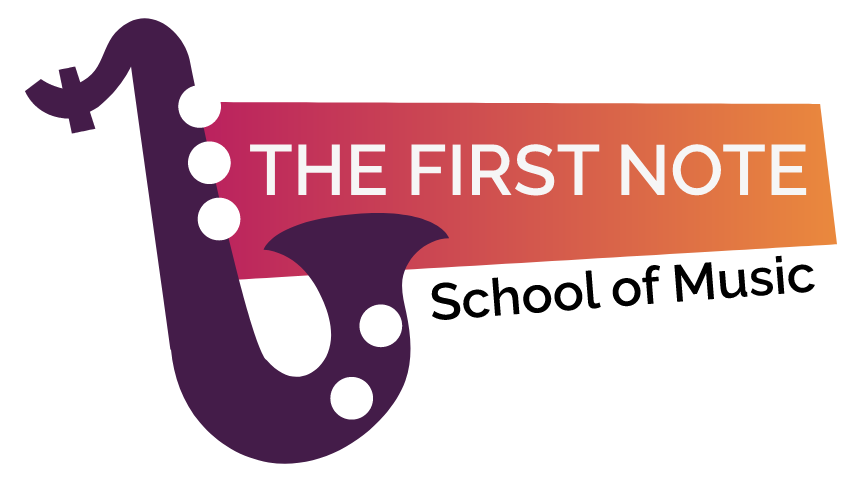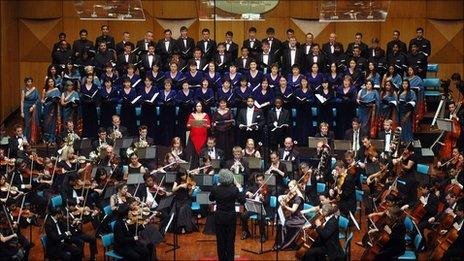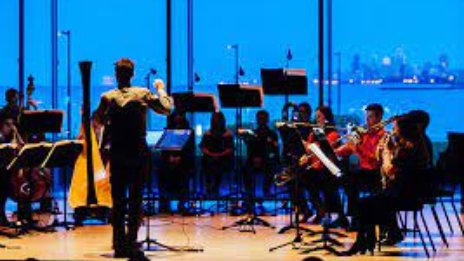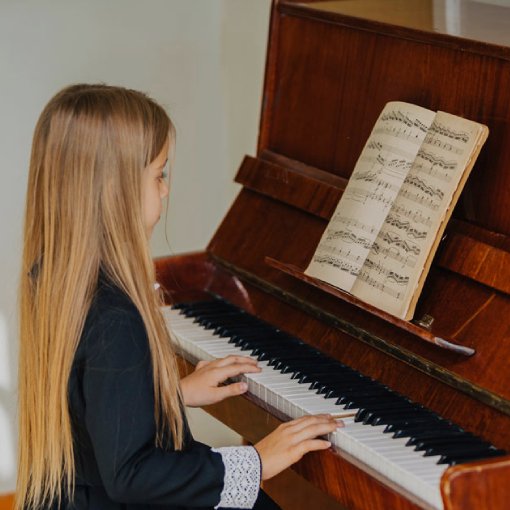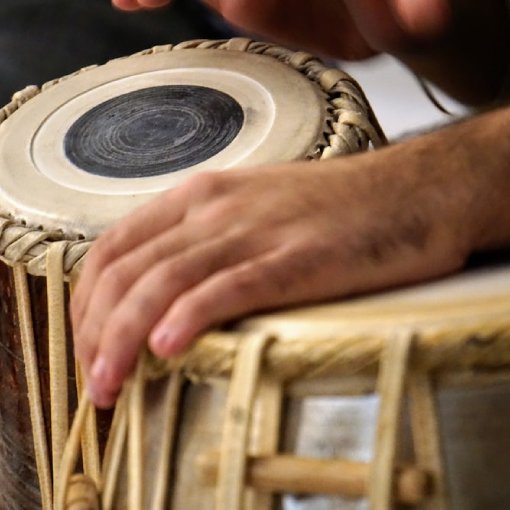Online Music courses
Ableton offers a variety of online courses to help you improve your music production skills.
- Home
- Online Music courses
- Online Music Courses
- Offline Music Courses
- Instrumental Courses
- Vocals
- Certification
Online Music courses
Music Production Courses by Ableton: Ableton offers a variety of online courses to help you improve your music production skills. From beginner courses to more advanced ones, they offer online classes that cover everything from recording and mixing to music theory and composition.
Piano Marvel: Piano Marvel is an online piano learning platform that offers courses for beginners to advanced players. They provide a personalized learning experience that adjusts to your skill level, making it easier for you to learn at your own pace.
Singing Lessons by ArtistWorks: ArtistWorks offers online singing lessons taught by world-renowned vocalists like Christina Aguilera, Paul McCartney, and more. You can choose the instructor that best suits your style and learn how to improve your vocal technique, expand your range, and develop your own style.
Music Business Courses by Berklee Online: Berklee Online offers music business courses that cover topics like music marketing, copyright law, and artist management. These courses are perfect for musicians who want to learn more about the music industry and how to succeed as an independent artist.
Drum Lessons by Drumeo: Drumeo offers online drum lessons taught by professional drummers. They have a library of over 1000 lessons that cover everything from basic drumming techniques to advanced fills and solos.
The piano has 88 keys, which are arranged in a pattern of white and black keys. The white keys represent the natural notes of the musical scale (A, B, C, D, E, F, G), while the black keys represent the sharps
Keyboards typically have 61, 76, or 88 keys, with the same pattern of white and black keys as a piano. They can be played using the same technique as a piano, but they also have a range of additional features
The piano has 88 keys, which are arranged in a pattern of white and black keys. The white keys represent the natural notes of the musical scale (A, B, C, D, E, F, G), while the black keys represent the sharps
Keyboards typically have 61, 76, or 88 keys, with the same pattern of white and black keys as a piano. They can be played using the same technique as a piano, but they also have a range of additional features
Private Lessons
TakeLessons is an online platform that connects students with music teachers offering private lessons in a variety of instruments and styles. You can browse teachers by instrument, location, or availability, and schedule lessons directly through the site.
Customised Lessons
Lessonface offers customized music lessons with professional instructors who can help you reach your specific goals. You can choose the length of your lessons, the frequency of your sessions, and the specific topics you want to focus on.
Music Concepts
MusicTheory.net is a free online resource that offers interactive lessons on music theory concepts, such as reading sheet music, scales and chords, intervals, and more. There are also exercises and quizzes to help you practice what you’ve learned.
Performances
Private music lessons are individualized instruction sessions in which a music teacher works one-on-one with a student to provide guidance and instruction on playing a musical instrument or singing.
Benefits of learn music
Learning music can provide many benefits for individuals of all ages and backgrounds. Here are some of the key benefits:
Cognitive development: Learning music has been shown to enhance cognitive development, particularly in areas such as language acquisition, spatial-temporal skills, and memory.
Emotional well-being: Playing music can be a source of stress relief and can enhance emotional well-being. It can help individuals to express their emotions in a healthy way and boost their self-esteem.
Improved coordination: Playing music involves a high degree of coordination between the hands, fingers, and other body parts. Regular practice can help improve overall coordination and motor skills.
Social skills: Playing music can also provide opportunities for social interaction and collaboration with others. This can help individuals develop social skills such as communication, teamwork, and leadership.
Cultural appreciation: Learning music can also enhance cultural awareness and appreciation. It can expose individuals to different styles of music and help them to understand the historical and cultural context in which they were created.
Overall, learning music can be a rewarding and enriching experience that provides both personal and social benefits.
For query, fill the enquiry form below
Offline Music Courses
Music Production Courses by Ableton: Ableton offers a variety of online courses to help you improve your music production skills. From beginner courses to more advanced ones, they offer online classes that cover everything from recording and mixing to music theory and composition.
Piano Marvel: Piano Marvel is an online piano learning platform that offers courses for beginners to advanced players. They provide a personalized learning experience that adjusts to your skill level, making it easier for you to learn at your own pace.
Singing Lessons by ArtistWorks: ArtistWorks offers online singing lessons taught by world-renowned vocalists like Christina Aguilera, Paul McCartney, and more. You can choose the instructor that best suits your style and learn how to improve your vocal technique, expand your range, and develop your own style.
Music Business Courses by Berklee Online: Berklee Online offers music business courses that cover topics like music marketing, copyright law, and artist management. These courses are perfect for musicians who want to learn more about the music industry and how to succeed as an independent artist.
Drum Lessons by Drumeo: Drumeo offers online drum lessons taught by professional drummers. They have a library of over 1000 lessons that cover everything from basic drumming techniques to advanced fills and solos.
The piano has 88 keys, which are arranged in a pattern of white and black keys. The white keys represent the natural notes of the musical scale (A, B, C, D, E, F, G), while the black keys represent the sharps
Keyboards typically have 61, 76, or 88 keys, with the same pattern of white and black keys as a piano. They can be played using the same technique as a piano, but they also have a range of additional features
Benefits of learn music
Learning music can provide many benefits for individuals of all ages and backgrounds. Here are some of the key benefits:
Cognitive development: Learning music has been shown to enhance cognitive development, particularly in areas such as language acquisition, spatial-temporal skills, and memory.
Emotional well-being: Playing music can be a source of stress relief and can enhance emotional well-being. It can help individuals to express their emotions in a healthy way and boost their self-esteem.
Improved coordination: Playing music involves a high degree of coordination between the hands, fingers, and other body parts. Regular practice can help improve overall coordination and motor skills.
Social skills: Playing music can also provide opportunities for social interaction and collaboration with others. This can help individuals develop social skills such as communication, teamwork, and leadership.
Cultural appreciation: Learning music can also enhance cultural awareness and appreciation. It can expose individuals to different styles of music and help them to understand the historical and cultural context in which they were created.
Overall, learning music can be a rewarding and enriching experience that provides both personal and social benefits.
For query, fill the enquiry form below
Instrumental Courses
Music Production Courses by Ableton: Ableton offers a variety of online courses to help you improve your music production skills. From beginner courses to more advanced ones, they offer online classes that cover everything from recording and mixing to music theory and composition.
Piano Marvel: Piano Marvel is an online piano learning platform that offers courses for beginners to advanced players. They provide a personalized learning experience that adjusts to your skill level, making it easier for you to learn at your own pace.
Singing Lessons by ArtistWorks: ArtistWorks offers online singing lessons taught by world-renowned vocalists like Christina Aguilera, Paul McCartney, and more. You can choose the instructor that best suits your style and learn how to improve your vocal technique, expand your range, and develop your own style.
Music Business Courses by Berklee Online: Berklee Online offers music business courses that cover topics like music marketing, copyright law, and artist management. These courses are perfect for musicians who want to learn more about the music industry and how to succeed as an independent artist.
Drum Lessons by Drumeo: Drumeo offers online drum lessons taught by professional drummers. They have a library of over 1000 lessons that cover everything from basic drumming techniques to advanced fills and solos.
Benefits of learn music
Learning music can provide many benefits for individuals of all ages and backgrounds. Here are some of the key benefits:
Cognitive development: Learning music has been shown to enhance cognitive development, particularly in areas such as language acquisition, spatial-temporal skills, and memory.
Emotional well-being: Playing music can be a source of stress relief and can enhance emotional well-being. It can help individuals to express their emotions in a healthy way and boost their self-esteem.
Improved coordination: Playing music involves a high degree of coordination between the hands, fingers, and other body parts. Regular practice can help improve overall coordination and motor skills.
Social skills: Playing music can also provide opportunities for social interaction and collaboration with others. This can help individuals develop social skills such as communication, teamwork, and leadership.
Cultural appreciation: Learning music can also enhance cultural awareness and appreciation. It can expose individuals to different styles of music and help them to understand the historical and cultural context in which they were created.
Overall, learning music can be a rewarding and enriching experience that provides both personal and social benefits.
For query, fill the enquiry form below
Vocals
Music Production Courses by Ableton: Ableton offers a variety of online courses to help you improve your music production skills. From beginner courses to more advanced ones, they offer online classes that cover everything from recording and mixing to music theory and composition.
Piano Marvel: Piano Marvel is an online piano learning platform that offers courses for beginners to advanced players. They provide a personalized learning experience that adjusts to your skill level, making it easier for you to learn at your own pace.
Singing Lessons by ArtistWorks: ArtistWorks offers online singing lessons taught by world-renowned vocalists like Christina Aguilera, Paul McCartney, and more. You can choose the instructor that best suits your style and learn how to improve your vocal technique, expand your range, and develop your own style.
Music Business Courses by Berklee Online: Berklee Online offers music business courses that cover topics like music marketing, copyright law, and artist management. These courses are perfect for musicians who want to learn more about the music industry and how to succeed as an independent artist.
Drum Lessons by Drumeo: Drumeo offers online drum lessons taught by professional drummers. They have a library of over 1000 lessons that cover everything from basic drumming techniques to advanced fills and solos.
Voice is obviously the oldest instrument in existence! As the music evolved over the ages, there was a need to entertain an increasingly large audience.
Vocals technique has evolved rapidly with the development of technology over the last century. With development of high quality microphones and PA systems
Benefits of learn music
Learning music can provide many benefits for individuals of all ages and backgrounds. Here are some of the key benefits:
Cognitive development: Learning music has been shown to enhance cognitive development, particularly in areas such as language acquisition, spatial-temporal skills, and memory.
Emotional well-being: Playing music can be a source of stress relief and can enhance emotional well-being. It can help individuals to express their emotions in a healthy way and boost their self-esteem.
Improved coordination: Playing music involves a high degree of coordination between the hands, fingers, and other body parts. Regular practice can help improve overall coordination and motor skills.
Social skills: Playing music can also provide opportunities for social interaction and collaboration with others. This can help individuals develop social skills such as communication, teamwork, and leadership.
Cultural appreciation: Learning music can also enhance cultural awareness and appreciation. It can expose individuals to different styles of music and help them to understand the historical and cultural context in which they were created.
Overall, learning music can be a rewarding and enriching experience that provides both personal and social benefits.
For query, fill the enquiry form below
Certificate Courses
Music certificate courses are educational programs that provide specialized knowledge and training in the field of music. These courses are designed to help individuals develop their musical skills and knowledge, whether they are pursuing a career in music or simply looking to improve their musical abilities.
Music certificate courses are available in a variety of areas, including performance, composition, music theory, music production, and music business. They may be offered by universities, colleges, conservatories, or music schools.
Certificate courses in music typically take less time to complete than a degree program and focus on a specific area of study. They may involve coursework, performance evaluations, and practical training. Some certificate courses may also include opportunities for students to perform in concerts or participate in music-related events.
Music certificate courses can be a great way to improve your skills and knowledge in music without committing to a full degree program. They are ideal for individuals who want to enhance their musical abilities, explore a new area of music, or prepare for a career in the music industry.
Overall, music certificate courses can be a valuable addition to your education and a great way to pursue your passion for music. They can provide you with specialized training and knowledge that can help you achieve your musical goals.

Beginner
Academy takes pride in providing expert guidance when it is needed the most! Without a strong foundation, it is impossible to build a strong

Advance
At advanced levels, music takes a lot of discipline, hardwork and dedication, but more than anything else expert guidance is absolutely indispensable
Benefits of learn music
Learning music can provide many benefits for individuals of all ages and backgrounds. Here are some of the key benefits:
Cognitive development: Learning music has been shown to enhance cognitive development, particularly in areas such as language acquisition, spatial-temporal skills, and memory.
Emotional well-being: Playing music can be a source of stress relief and can enhance emotional well-being. It can help individuals to express their emotions in a healthy way and boost their self-esteem.
Improved coordination: Playing music involves a high degree of coordination between the hands, fingers, and other body parts. Regular practice can help improve overall coordination and motor skills.
Social skills: Playing music can also provide opportunities for social interaction and collaboration with others. This can help individuals develop social skills such as communication, teamwork, and leadership.
Cultural appreciation: Learning music can also enhance cultural awareness and appreciation. It can expose individuals to different styles of music and help them to understand the historical and cultural context in which they were created.
Overall, learning music can be a rewarding and enriching experience that provides both personal and social benefits.
